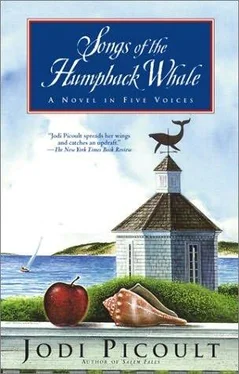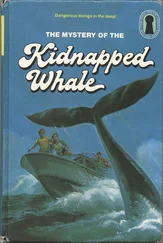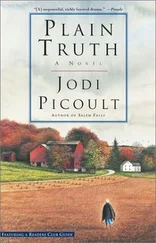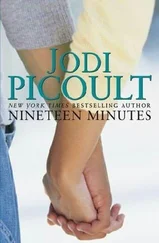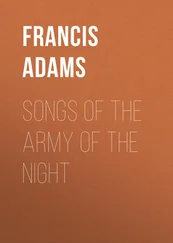When my eyes focus again Mica is talking to Hugo, and pulling on her faux leather coat. “Come on,” she says, “I’m taking you back to my place. It’s in Southey, and it’s a hike, but you can make it.” She puts her arm around me, almost as tall as I am, and I lean on her to get off the stool. It takes us fifteen minutes to walk there and the whole way, as idiotic as I imagine I look, I can’t keep myself from crying.
Mica opens the door to the apartment and apologizes for the mess. Strewn across the floor are empty pizza cartons and textbooks. She leads me into a sideroom barely large enough to be a walk-in closet, which holds a white futon and a floor lamp. She loosens my tie. “Don’t get the wrong idea,” she says.
I let her take off shoes and my belt and then I practically collapse onto the low futon. Mica gets a washcloth and a bowl of water and leans my head in her lap, sponging my temples. “Just relax. You need to get some sleep.”
“Don’t leave me.”
“Oliver,” Mica says, “I have to go to work. But I’ll be back. I promise you that.” She leans close to my face. “I have a good feeling about this.”
She waits until she thinks I am asleep, and then she edges my head off her lap and creeps out of the room. I’m pretending because I know she needs to go back to the diner. She needs the money. She turns off the lights and closes the front door behind her. I have every intention of getting up and walking around, but suddenly my body has become so heavy it is a hardship. I close my eyes and when I do I can perceive her there. “Jane?” I whisper.
Maybe this is the way it would be if you had died. Maybe I would be crying, wishing there had been one extra minute. Maybe I would spend my time and money contacting mediums, reading up on the spiritual world, in hopes of finding you so that I’d have the chance to tell you things I hadn’t. Maybe I would look twice in the reflection of mirrors and store windows, hoping to see your face again. Maybe I would lie in bed like I am now, with my fists clenched so hard, trying to convince myself you are standing, flesh and blood, before me. But in all likelihood, if you were dead, I wouldn’t have any chance at all. I would not get to tell you what I should have been telling you every day: that I love you.
With the moves of a practiced dancer, the man twists the ram onto its side, catching its haunch in the crook of his leg and rolling it, a cross between a pas de deux and a half-nelson. With the ram breathing evenly, he peels away the fleece. It falls away in one continuous piece. It’s white and clean, the underside.
When he finishes he tosses the shears on the ground. Pulling the ram to its feet, he leads it by the neck out of the fenced gate. He slaps its behind and it runs off, naked.
“Excuse me,” I say, “do you work here?”
The man smiles. “I suppose you could say that.”
I take a few steps closer, watching the wet hay to see that it doesn’t stick on my still-white sneakers. “Do you know someone named Joley Lipton?” I ask, looking up. “He works here too.”
The man nods. “I’ll take you to him in a minute, if you’d like. I’ve got one more to shear.”
“Oh,” I say. “All right.” He asks me to help, to make it go faster. He points to the door of the barn. I turn to Rebecca, mouthing, I don’t believe this. I follow him into the barn.
“Hey little lady,” the man whispers, “hey my pretty little lamb. I’m gonna come a little closer. I’m gonna come a little bit closer.” As he says this he is creeping forward, and then with a shout he sinks his hands into the wool of the sheep’s back. “Take this side. She’s young and feisty, and she’ll get away.”
I do what he has done, and hunch over with my fingers roped into the fleece. All three of us walk out to the brown mat. “Where would you like me to put this?” I ask, wondering if I should just go off on my own to find Joley. God only knows how long this will take.
“Put her over here,” the man says, nodding his chin several feet forward. He lets go of his side, and, following suit, I do the same. The sheep takes a quick look at me and runs away. “What are you doing! Catch her!” the man yells.
Rebecca lunges at the sheep but it darts in the other direction. The man stares at me, incredulous. “I thought it would just stay put,” I say, explaining. The least I can do is catch the damn thing. I run to a corner of the pen and try to sink my fists into the wool of the sheep’s neck again. But suddenly I’ve lost my balance and though I reach for the fence, for Rebecca, I grab at nothing at all. I fall with an audible squelch and gag. “Rebecca,” I choke out, “get over here.”
The man is laughing in the distance. He grabs the sheep like it is no trouble at all and hoists it onto the brown cloth mat. He shears the thing in seconds, while I am trying to shimmy sheep manure off of my legs. I can’t get away from the smell.
“Tough break,” the man says, walking over.
I’ve had about as much of this asshole as I can take. “I’m sure this isn’t appropriate behavior for a field hand,” I say, putting on my most educated cocktail-party voice. “When I tell Joley about this, he’ll report you to the person who runs the place.”
The man offers his hand to me, but takes it away when he sees what’s covering my fingers. “I’m not too worried about that. I’m Sam Hansen. You must be Joley’s sister.”
This idiot, I think, this fool who’s gone out of his way to humiliate-me; this is the Boy Wonder Joley raves about?
I turn away, from embarrassment or sheer anger or whatever, and whisper to Rebecca, “I want to clean up.”
Sam takes us up to the Big House, as he calls it, the modest mansion-of sorts that overlooks the hundred acres of apples. He rattles off dates and facts that I imagine are meant to impress us: it was built in the 1800s, it is filled with antiques, blah blah blah. He leads me up the spiral staircase to the second room on the right. “Your stuff still in the car?” he asks, as if this is my fault as well. “This was my parents’ room. You’ll fit into my mom’s stuff. Check in the closet.”
He walks out and closes the door behind him. It is a pretty room with a four-poster, a night table stacked with curly maple Shaker boxes, and curtains and a comforter in wide blue-and-white awning stripes. There are no dressers or bureaus or armoires. I lean against the wall and wonder where Sam’s parents put their clothes, and when I stand up again the wall juts open, hinged from the inside, pressing open into a hidden closet the size of a room itself. “How neat,” I say to myself. When you close the closet, the wallpaper matches so exactly-blue cornflowers-you’d never know there was a door. I press against the wall again and it springs off its magnetic hook. Inside are four or five sundresses and skirts, not half as dowdy as I’d imagined. I pick a pretty madras, which turns out to be two sizes too big, and I belt it with a bandanna that has been tied to a hook inside the closet.
I am tempted to leave the dirty clothes on the floor of this room but something tells me there won’t be maid service. So I gather them into my arms, inside out, and head downstairs. Rebecca and Sam are waiting. “What should I do with these?”
Sam looks at me. “Wash them,” he says, and then he turns and walks out the door.
“He’s a hell of a host,” I say to Rebecca.
“I think he’s pretty funny.” She shows me where the washing machine is.
“Thank God. I was expecting a scrub board.”
“Are you coming or what?” Sam yells through the screen door. “I don’t have all day.”
We follow him through the orchard, which I have to say really is beautiful. Trees spread their arms in octopus embraces, jeweled with waxy green leaves and bud necklaces. They are planted in neat, even rows, with plenty of room between them. Some have grown so big their branches entwine with the tree beside. Sam tells us which parts of the orchard are retail and which are commercial. Each patch of trees is cut by several roads, and the markers on the roads tell you what’s grown where and to whom it gets sold.
Читать дальше
